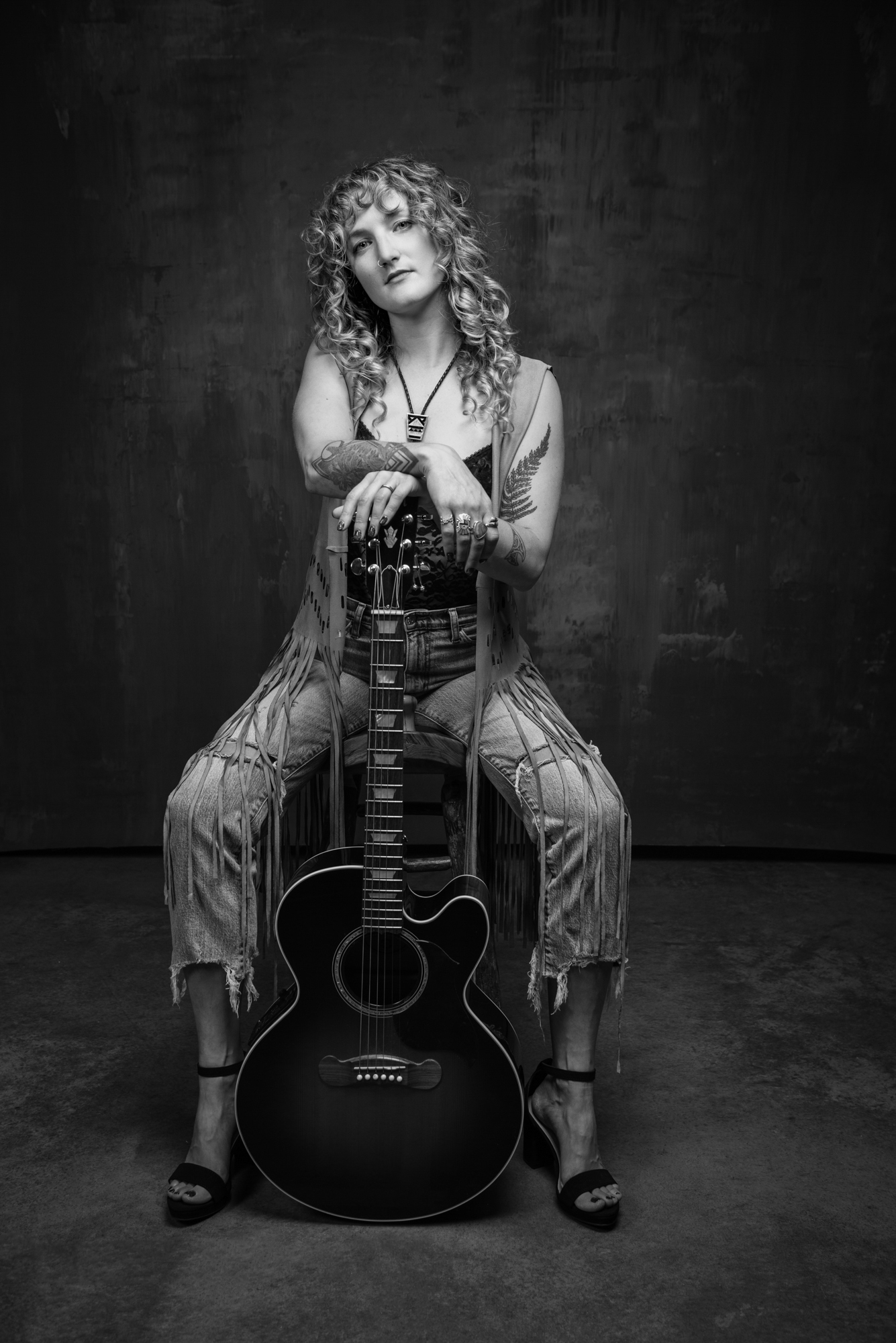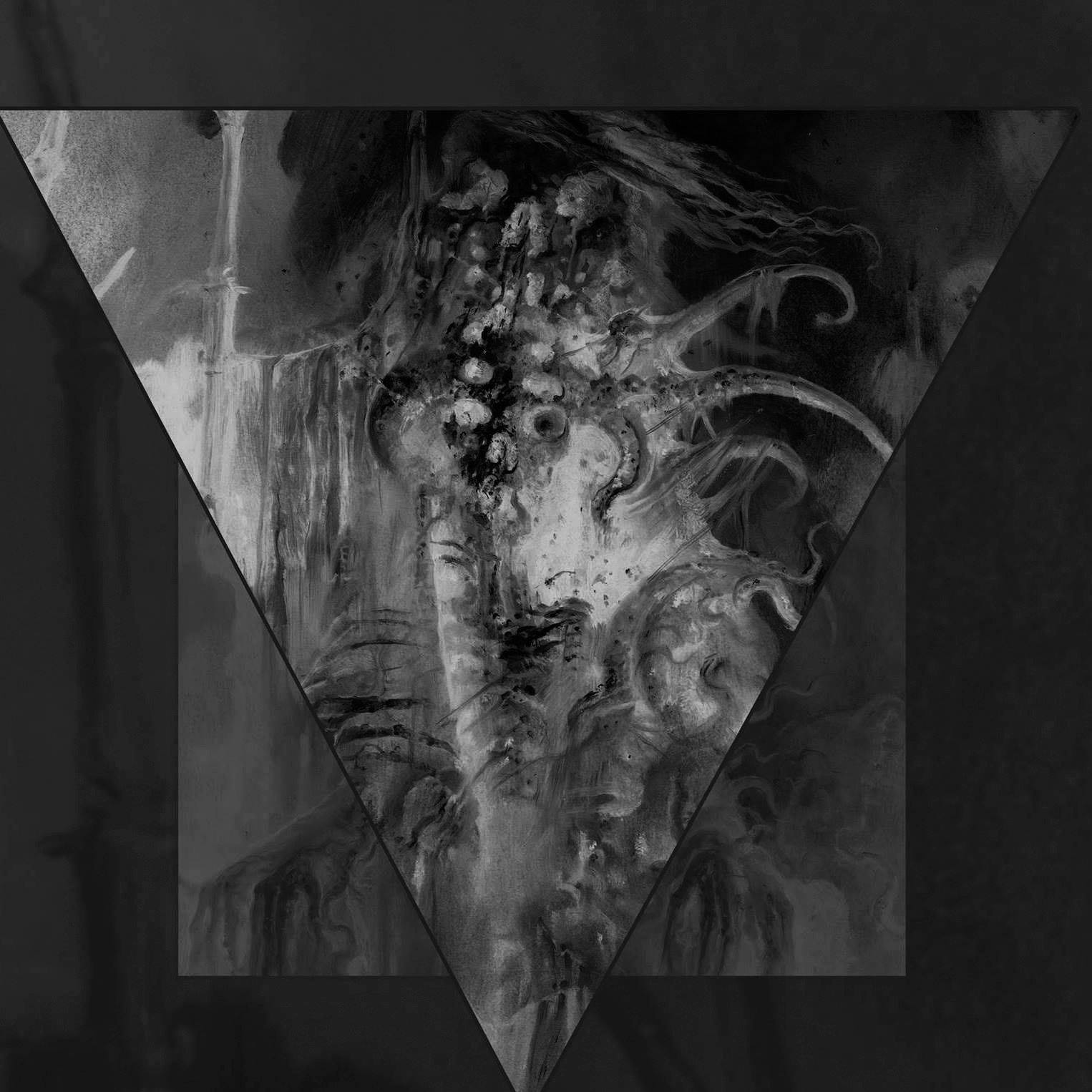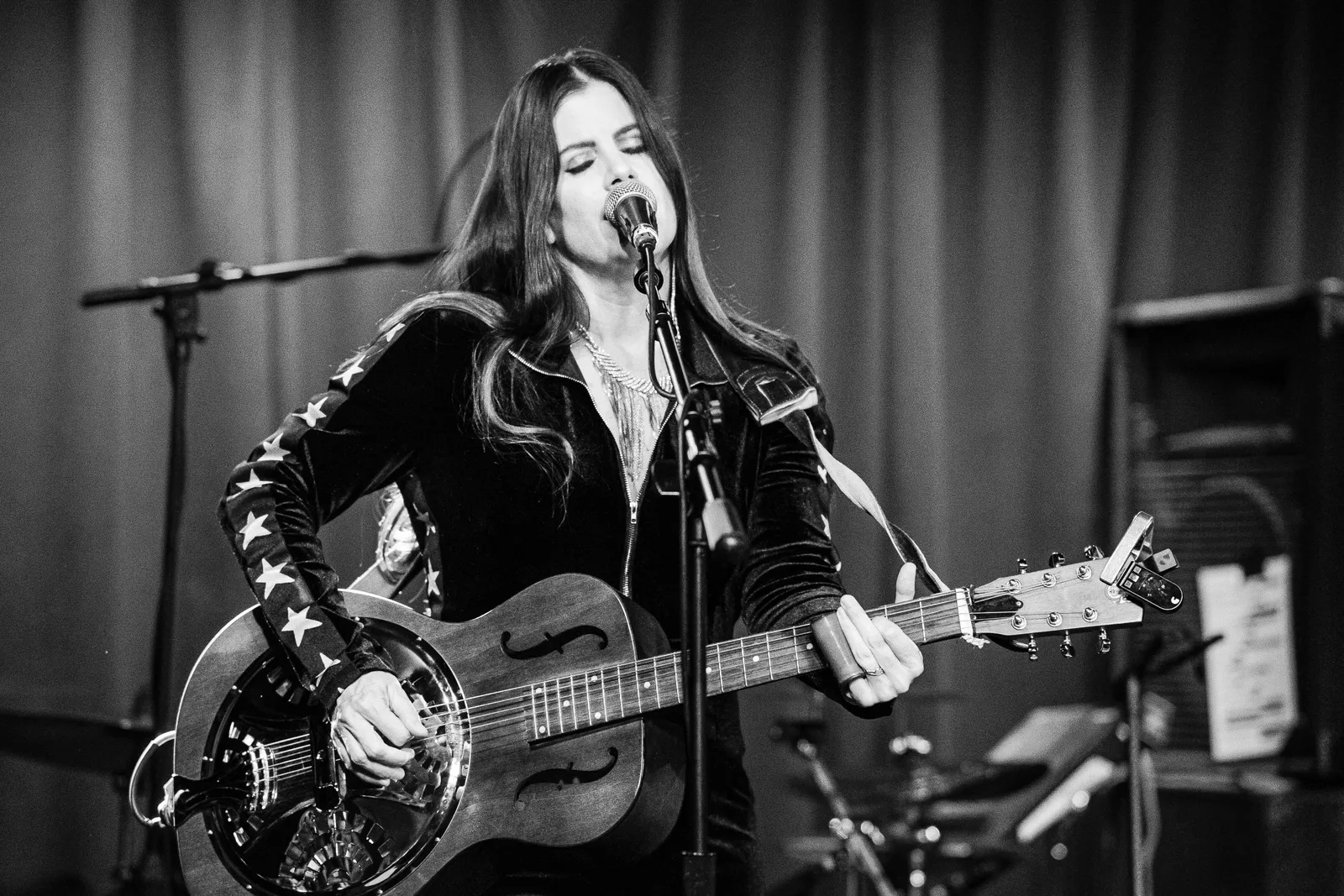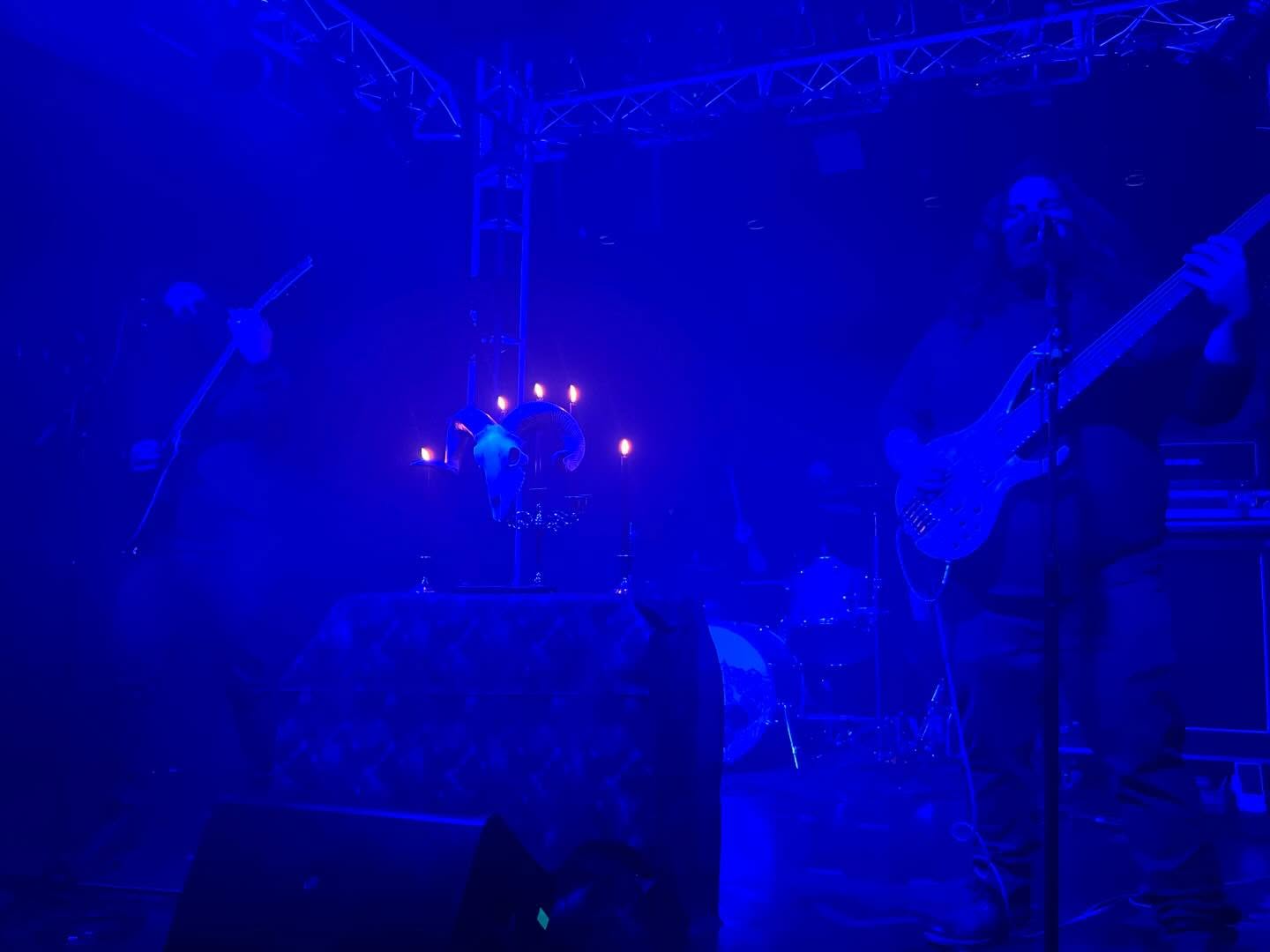
The miles we travel make up the stories we tell.
The soles of your favorite boots or the tread on your prized car’s tires soak up the experiences and wisdom of the road under your feet. Born in New England, based in Bozeman Montana, singer, songwriter, and multi-instrumentalist Madeline Hawthorne pens the kind of tunes you listen to on a cross-country trek to start anew or in the dead of night when you just need a reminder that somebody’s listening.
In this respect, her 2024 independent album, Tales From Late Nights & Long Drives, serves as a fitting soundtrack to life’s trip.
“It’s the perfect road trip record,” she affirms. “It was mostly written while I was on tour. If the songs were written at home in Montana, I took inspiration from journal entries and memories of my travels. This is me stepping onto the stage with more miles under my boots. I’m giving into the moment and the melody to tell a story. It’s like eleven different versions of me—a woman I could have been, a woman I perhaps thought I was, and a woman I hope to be someday.”
Obsessed with music since her childhood on the East Coast, Madeline planted roots in Bozeman, MT during college and never turned back. She honed her talents through countless backup and band gigs before going solo amid the Global Pandemic. Balancing Americana, roots, folk, and rock, she introduced herself on the 2021 LP, Boots, co-produced by Brad Parsons and Tyler Thompson in Pittsburgh. In between, she shared the stage with everyone from Jason Isbell, Lukas Nelson, Josh Turner, and Kip Moore to Sierra Hull, John Craigie, and Nathaniel Rateliff. Plus, she wowed audiences at festivals such as Treefort Music Festival (ID), Americanafest (TN), WinterWonderGrass (CO), Pak City Song Summit (UT), Roseberry Music Festival, (ID), and more. Earning acclaim for tracks like 2023’s “Neon Wasteland,” Relix applauded her “vibrant and buzzing.” Hawthorne has also caught the eye of CMT, who featured her “Neon Wasteland” video at CMT.com and she has received praise from tastemakers such as No Depression who says, “She’s been crushing rootsy tunes.”
Eventually, she decamped to Bear Creek Studios for ten days to record Tales From Late Nights & Long Drives alongside producer Ryan Hadlock [Zach Bryan, The Lumineers].
“I was fully immersed in the experience,” she recalls. “I went for a walk every day, wrote in my journal, and spent a nice amount of time with the spirits of artists who have worked there before me. I appreciate that Ryan put my acoustic guitar first in the arrangement. He felt it was important for listeners to hear the songs with the instruments of origin driving the vibe and feel of the music.”
You can hear this energy loud and clear on the first single “Chasing The Moon.” Bright acoustic guitar underlines pensive lyrics uplifted by piano and a steady beat. Her words resound with excitement as she observes, “That lonesome highway is my Hollywood Boulevard.” On the hook, she exhales, “You can’t change the way things are, but I’ll try again. I’ve got nothing left to lose chasing the moon.”
“I wrote “Chasing the Moon” about my many late nights driving through Montana, Idaho, Washington, Oregon, Utah, Wyoming, and Colorado,” she notes. “It was born driving down Highway 191, going from Big Sky to West Yellowstone. Sometimes, I’ll pull over, get out of my car, and look up at the night sky. It’s powerful to stand in the quiet of the night and listen with your heart.”
Loose slide guitar mirrors the sway of her vocals on “Where Did I Go Wrong.” Her reflections ripple with raw emotion, “Pushed you away for the sake of a song, I need a drink, a moment to think, where did I go wrong?”
“The words you hear are the first words that came out of my mouth,” she goes on. “There are no edits. Although I’m happily married, I’d be lying if I told you this career path doesn’t challenge even the strongest of relationships. I never want to be that woman sitting alone at a bar wondering where she went wrong. It’s a good reminder to nurture a loving relationship.”
On the other end of the spectrum, “Night Ride” instantly intoxicates as she urges, “Roll me up like a joint and smoke me.” She remembers, “It’s about the time I had with my husband during the pandemic. It’s rare we get that much time together without a million things to do. It was a silver lining to an incredibly challenging period.”
The opener “Cold Shoulder” culminates on a wild guitar solo laced with organ. “The record starts off hot and heavy,” she goes on. “It’s a sequel to Boots, which ends with my songwriter character leaving her old self behind to step into a new form. It’s a sassy statement about where I am and how I feel as an artist and a woman.”
The LP concludes with the pensive and poetic “Long Drive To Bozeman,” which traces a map of her life so far. “It’s about my journey to Montana from New Hampshire when I was 18-years-old,” she notes. “I met a boy. We both had aspirations to move to Montana for school, so I drove him to college. Driving into Bozeman still stops my breath to this day. I wound up marrying that man and now we have a house in Bozeman with two cats, two dogs, and a garden. I followed my heart and it brought me home.”
In the end, Madeline is here for you on your journey.
“I’d suggest playing this in your car this summer on a long drive,” she smiles. “Sip your favorite beverage and spin the vinyl in your listening room—or turn it up to 11 and dance wildly around your kitchen. Wherever you are, I hope it gives you what you need. This is an album for the lovers, the wild children, and the ones who refuse to grow up too much. Adventure is always out there. Go on and take the leap.”
SIMILAR ARTISTS








